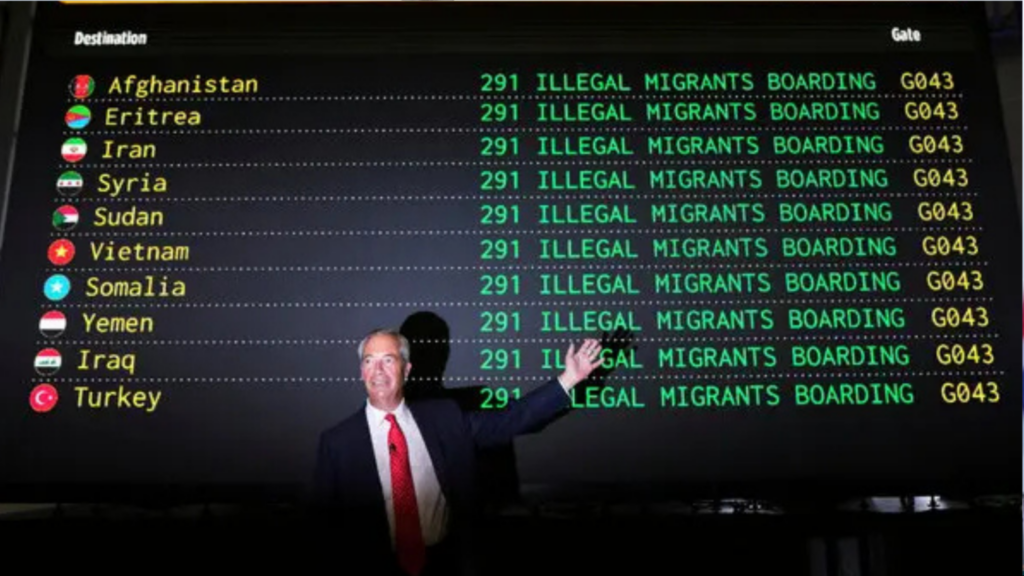Europe’s Geopolitical Opportunity: A Third Pole
This article is part two of a three-part series on the future of transatlantic relations and the positioning of Europe in a changing world order due to the economic rise of Asia. In part one the conditions of the changing world order are outlined.
In this (second) part, Kishore Mahbubani’s ideas for a more independent positioning of Europe are examined. The Respective Recommendation for Action for Europe is presented. This is followed by the brief development of a scenario based on the proposal. Subsequently, the hypothetical consequences of the scenario are analyzed.
The rise of Asia in general and the People’s Republic of China (PR China) in particular is changing the global balance of power and therefore the world order. The unipolar moment of the USA is coming to an end. In this changing world order, how will Europe position itself in relation to the USA, its traditional ally? It should be noted that the positioning towards the USA always includes a corresponding positioning towards the PR China.
The Proposal: Europe’s Geopolitical Opportunity
Covid-19 has highlighted two forces that are currently shaping US (forging) policy. On one hand, the USA are afraid of losing its previous global supremacy. This inevitably leads it into a fierce competition with China. On the other hand, the United States is increasingly skeptical of multinational organizations/institutions (Mahbubani 2020, 26-29).
In view of the challenges facing Europe, the question arises as to how Europe should position itself vis-à-vis America (and thus China). China’s rise does not necessarily pose a threat to Europe and can in fact serve its long-term stability =. However, it will not be easy for the states of Europe to adopt a position independent of the USA. A first approach in this regard was seen in the USA’s withdrawal from the nuclear agreement with Iran. A number of European states founded INSTEX in order to continue to trade with Iran, which annoyed the USA (Mahbubani 2020, 28).
European heads of state repeatedly affirm the importance of the global multinational organizations, which (currently) puts them in contradiction to the USA. In contrast to the United States, the People’s Republic of China remains committed to supporting multinational institutions and processes. So, if Europe wants to strengthen multinational organizations, closer cooperation with China may be necessary (Mahbubani 2020, 29).
In view of the statements of the President of the European Commission (Ursula von der Leyen) that the new Commission is a geopolitical one, it is clear that there is an awareness that Europe (or the European Union) could (or should) become geopolitically more independent from the USA (Steinicke 2020, 1).
It is not necessarily in Europe’s interest to continue to (unconditionally) support the strategic and geopolitical interests of the USA. It may be even necessary to work more closely with China, especially immediately after Covid-19.
The Scenario: Go your own Way
Since the USA continued its isolationist policies, the European Union began to detach itself. The first steps are a common foreign and security policy, possibly including a European army. The European Union is playing an increasingly important role in the conflicts in North Africa and the Middle East.
The trade disputes with the USA caused the economies of Europe to look to the East. China has become Europe’s most important trading partner. The economic corridors, which are part of the One Belt One Road Initiative, play an important role. Eurasia is growing together into one economic area. Nevertheless, the USA remains an important trading partner for Europe and transatlantic relations are still relatively good because of shared values (such as democracy). Europe is engaged in a balancing act between approaching China and maintaining relations with the USA.
The Consequences: a Risky Endeavor
If Europe wants to position itself as its own geopolitical pole (independent from the USA) in a multipolar world order, this has several implications. The elephant in the room is of course the shaping of the transatlantic relationship or the future of NATO in such a scenario. If the European states turn their backs on NATO, they must organize their own defense (without US support). The strategic autonomy sought by the EU would require an increase in the European states’ defense spending (Biscop 2020, 82-90).
Even if NATO remains in place, but the Europeans want to play a stronger role within the Organization, defense spending will have to increase. As can be seen in the diagram, hardly any country reached NATO’s target of 2% of GDP in 2016. Looking at the financial situation, it becomes clear that for an EU that is geopolitically (more) autonomous from the USA, the pace of empowerment from the USA must be increased. For example, the Federal Republic of Germany (Europe’s largest economy) will probably not reach the 2% target until the 2030s (Deutsche Welle 2019).
A further development of the EU’s external relations would also be necessary. So far, the European Union is held back by its internal complexity. The member states would have to agree on a common foreign policy line (Cini 2016, 224).
Apart from foreign and security policy changes, the economic challenges should also be taken into account. The USA is (by volume) the most important trading partner of the European Union. A decline in transatlantic trade could have negative effects on the European economy.
Since the United States have a large trade deficit with the EU, this is likely to affect particularly export-oriented economies (such as Germany). It should also be noted, however, that an intensification of trade with China could balance out the (partial) losses. The most important thing here is how the Chinese market will develop in the future.
The independent geopolitical positioning of Europe is a high-risk undertaking. A (partial) separation from the USA requires that the European states overcome their internal conflicts. Only then can Europe assert itself in a multipolar world between the superpowers USA and China. There exists as well a chance to strengthen the multinational institutions that have recently come under pressure.
References
Biscop, Sven (2020): The Future of the Transatlantic Alliance: Not Without the European Union. In: Strategic Studies Quarterly, Fall, 2020, p. 81-94.
Cini, Michelle/ Borragan, Nieves Perez-Solorzano (2016): European Union Politics. Oxford, Oxford University Press.
Deutsche Welle (2019): Merkel vows to hit 2% NATO spending target “by early 2030s”. Retrieval at: https://www.dw.com/en/merkel-vows-to-hit-2-nato-spending-target-by-early-2030s/a-51432189. Retrieved on: 01.10.2020.
Mahbubani, Kishore (2020): Europas geopolitische Chance. In: Internationale Politik. 4/75. S. 26-30.
Steinicke, Stefan (2020): Geopolitics is back – and the EU needs to get ready. (International Politics and Society). Retrieval at: https://www.ips-journal.eu/regions/europe/geopolitics-is-back-and-the-eu-needs-to-get-ready-4079/. Retrieved on: 01.10.2020.



